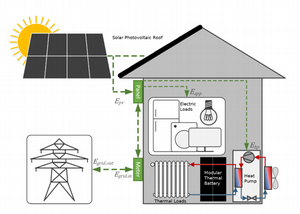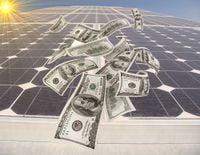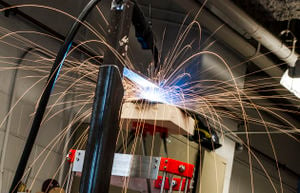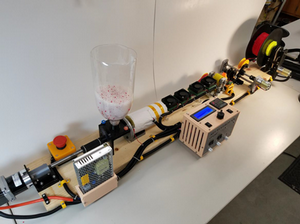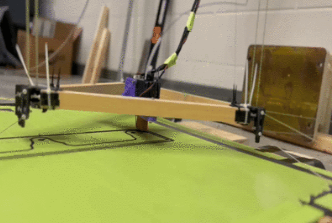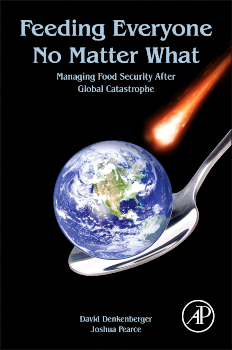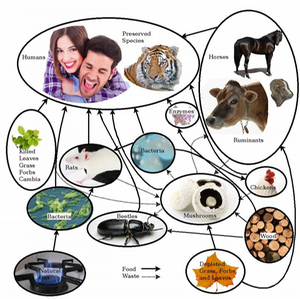Research
CONTACT US
Amit Chakma Engineering Building
The Meister Family Suite
Room: 2410
London, ON, N6A 5B9
Tel: 519-661-2111 ext. 86725
Email: tceli@uwo.ca
Research
The Thompson Centre faculty and students are involved in unique multidisciplinary engineering, innovation, leadership, and educational research studies.
Solar Photovoltaic Projects
Solar photovoltaic (PV) technology provides the lowest cost electricity available in most markets including North America and was established as a sustainable energy source by Dr. Pearce decades ago. As installed costs continue to decline, antiquated polluting fossil-fuel-based grid electricity prices continue to escalate, PV growth will continue to expand to dominate the energy industry of the future because it simply has a lower levelized cost.[1] Today, it is even profitable to electrify your heating with solar powered heat pumps in both Canada and the US.[2] To accelerate a sustainable future with PV, we still need to decrease the costs by implementing optimal designs that use PV the most effectively. FAST is accounting for meteorological factors using FOSH sensing and datalogging to suggest best practices for reducing losses and increasing yields for PV systems. While at the same time pushing the limits of new PV systems designs including agrivoltaics (combining PV with agriculture with novel low-cost open source racking, new types of cells, and integration into greenhouses all of which have shown the potential to increase farm revenue and in many cases increase yields), floatovoltaics (using floating PV to reduce water evaporation while increasing yield with water cooling, open source building integrated PV (BIPV), coupling PV with heat pumps to use renewable energy to electrify heating, and PV-powered electric vehicle charging to electrify transportation. The Western Innovation for Renewable Energy (WIRED) system is currently under construction to test out new open source methods to reduce PV systems costs and enable novel forms of agrivoltaics including the world's first Agrivoltaic agrotunnel. Also check out our Agrivoltaics Conference
Open Source Distributed Recycling and Additive Manufacturing (DRAM) Projects
Free and open source hardware (FOSH) consists of physical objects designed and offered in the same manner as free and open-source software (FOSS). We develop open-source scientific hardware for open source labs using Arduino microcontrollers and RepRaps in addition to our work in open source appropriate technology (OSAT), which are easily and economically made from readily available resources by local communities to meet their needs. We are on the front lines of a 3D Printing Revolution. FAST is developing solar powered self-replicating open-source 3-D printers - capable of making primary components of solar photovoltaic systems from recycled waste. This is part of a process called distributed recycling and additive manufacturing (DRAM), where anyone can use waste and free designs to make valuable products for themselves. We have shown it is environmentally and economically superior to traditional centralized and proprietary systems. as part of DRAM. Here is the plan. How would global society change if everyone had access to abundant low-cost renewable energy via solar electricity, open source 3D designs and an affordable open source 3-D printer like the RepRap? To make this possible, Pearce's group has developed many low-cost high performance 3-D printers like the first <$2000 open-source metal 3-D printer and the first automated recycleBot, a waste plastic extruder that can take household polymer waste and turn it into valuable 3-D printer feedstock. Now FAST is developing new high-performance manufacturing machines capable on one end of high resolution and on the other end of large prints with waste feedstocks using hang printers. In addition, FAST is using open source computer vision and artificial intelligence to make smart printers that can fix printing errors in real time.
Resilience and Alternative Food Projects
Mass human starvation is currently likely if global agricultural production is dramatically reduced for several years following a global catastrophe: e.g. super volcanic eruption, asteroid or comet impact, nuclear winter, abrupt climate change, super weed, super crop pathogen, super bacterium, or super crop pest. Even worse, such a catastrophe may cause the collapse of civilization, and recovery is not guaranteed. Therefore, this could affect many future generations. The primary historic solution developed over the last several decades is increased food storage. Storing up enough food to feed everyone, however, would take a significant amount of time and would increase the price of food, killing additional people due to inadequate global access to affordable food now. Humanity is far from doomed, however, in these situations - there are solutions. In the book Feeding Everyone No Matter What, Dr. Pearce and collaborator Dr. Denkenberger present a scientific approach to the practicalities of planning for long-term interruption to food production. This research in FAST continues investing distributed food production and finding practical low-cost ways using open source tools to derive edible food from leaves (leaf concentrate), seaweeds, wood, and perhaps most radically -- from waste plastic.
Frugal Biomedical Projects
Another area of research is Frugal biomedical research. The Frugal Biomedical Innovations (FBI) Program at UWO is a multi-disciplinary initiative established to facilitate co-design, development and deployment of innovative medical technologies that improve healthcare access for patients in remote and low-resource contexts. For example, Dr. Reeves and Dr. Pearce worked together on an open source design of a 3D printable walker that costs less and weighs less than commercial walkers.

